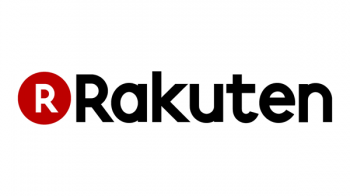New tax plans risk harming UK digital ad market
Jon Mew, CEO, IAB UK
Following the announcement of a digital services tax in this year’s Budget, our CEO Jon Mew urges the Chancellor to consider the impact on the wider market.
The UK digital advertising market is a success story. Through its Digital Charter, the Government has set itself the task of making the UK the best place to start and run a digital business, and it’s beginning from a strong position with the online ad industry. The market not only contributes directly to the economy – every £1 spent on advertising contributes £6 to GDP – but also helps to fund digital content and services. And the UK leads Europe: our digital advertising market is larger than the next three combined.
This success is despite the fact that as an industry we’re dealing with a very challenging regulatory and economic environment created by the impact of the GDPR, the proposed EU ePrivacy Regulation and significant uncertainty around Brexit. Added to that, both the EU and the OECD are working to develop international agreements for a new tax on companies’ digital turnover, and the UK Treasury has set up a review of barriers to competition in the digital economy, led by President Obama’s former chief economist Jason Furman, which could result in further regulatory intervention.
With so much Government activity affecting online advertising, it is surprising to see growing speculation that Chancellor Philip Hammond may be preparing to announce plans for the UK to implement its own Digital Services Tax in his Budget today. The new tax, understood to be a tax on revenue for advertising viewed in the UK, would seriously harm the UK digital advertising market at large and come at a time when it is facing the most uncertain economic and regulatory climate the digital sector has ever seen.
While the Government has said it wants to focus new measures on larger businesses, it would be difficult to avoid collateral damage across the sector and a negative effect on competition. A tax on revenue would create a disincentive for competitors to set up and grow in the UK market and would impact on mid-market players who drive competition and provide choice.
The Government needs to carefully consider whether this is the right approach at the right time. As we know, digital advertising is a highly integrated ecosystem and a squeeze on one part can have significant impact on others. It would be unwise for the UK to unilaterally implement a new tax without considering the unintended consequences and the likely impact on competition, investment and downstream beneficiaries of advertising spend, such as content creators. It would be sensible, too, to wait for the outcome of the Furman Panel set up to look at exactly these questions.
If the Government is truly committed to ‘leading the world in innovation-friendly regulation that supports the growth of the tech sector’ – as it has repeatedly said it is – then it should focus on supporting efforts to accelerate the OECD process to agree an international approach to digital taxation rather than pursuing a unilateral tax that would damage one of the UK’s most successful and thriving industries.
Related content
What do we know about proposed changes to UK GDPR?
Learn moreEU Commission adopts data adequacy decision for the UK
Learn moreMEMBER RESEARCH: Marketing Post-Brexit
Learn moreBrexit Breakfast Briefing: IAB UK offers practical guidance for businesses
Learn more
Fast forward to 2030 with Futurescape
An in-depth exploration of the attitudes, innovations and media shifts that will shape the years ahead and redefine how we advertise by the turn of the decade



